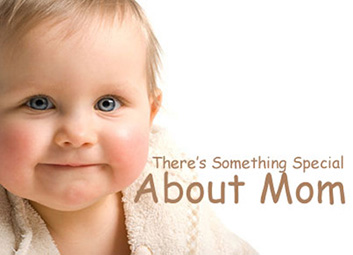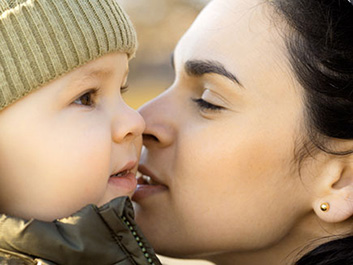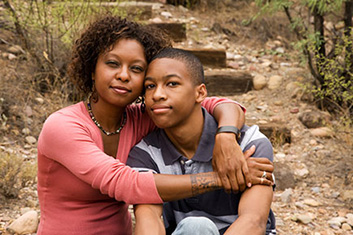Internal mini form
Contact Us Today
Special Moms

A woman of super-human powers and uncommon grace, our mothers are the go-to individuals that wipe tears, administer sage advice, advocate for us behind the scenes and work every day to bring out the best we have to offer. Here’s our tribute to the woman who believes in us.
When we’re growing up, our mothers are larger than life, tall.
Not only is mom physically and figuratively bigger than we are, she always knows how to solve a problem. Having an issue with a bully at the bus stop? Mom’s got the plan.
Experiencing a lack of confidence when we want to ask that special someone to go to the dance? Mom not only helps craft the winning line, she teaches us how to two-step it, and sends us to the school auditorium in freshly-pressed pants or a newly-hemmed dress. She reminds us to take the corsage, be cordial, and don’t forget the tickets. If we are “lucky,” she licks her hand and flattens the hair sticking awkwardly atop our head.
Mom’s mad skills and resources seem to know no bounds when we’re young; as children we take for granted that our mother’s input and words of wisdom will always be there for us to tap into just when we need it. Sometimes, when we don’t.
Sometimes – usually when we are trying to wear our independence – there comes a time when Mom’s input is, well, not appreciated.
Yet, we always want to make her proud. We appreciate the fact that she gives us a knowing glance, a gentle embrace or a protective pat on the back instead of saying “I told you so.” And, we have to admit, we still laugh when we recall the time she drove up to the school curb, alongside our group of friends – even if we begged her to drop us off the block away – when she waited until we were 50 feet away to shout “I love you, Sweetie!”
She’s a seamstress that makes sure we have a costume when we’re playing a grapefruit in the school play. She’s a proofreader that makes sure our brilliant essay on “Huckleberry Finn” makes the grade. She’s a chef that serves up our favorite dish on our not so favorite days. A personal trainer that helps us exercise it off. She’s the crusading litigator that tells the nice police officer what a good little boy, or girl, we really are despite the fact that we egged someone’s car. She’s a skilled emergency medic that makes better time than the local fire department if we’ve fallen out of a tree.

If we have special needs, Mom adds additional roles to that roster. She coordinates our medical treatments, therapies, special education, early intervention, adult transitioning, and more. She spearheads our ability to be mobile, communicate, and thrive. Most importantly, she navigates us through the seizures, administers at-home therapies, ensures the food is palatable, maintains our G-tube, monitors the oxygen levels, makes sure we are wearing orthotics, braces and clean underwear. She carts us in and out of wheelchairs, modified vehicles, buses, bathtubs, and more. Equally important, she becomes an impassioned advocate for inclusion, education, socialization, activity, and opportunity.
When a situation goes poorly, mom is the first person to blame herself. But if something goes well, she’s the last person to take credit. She’s the person who silently tears in the shower when the pressures and stresses of life have punctured her venerable armor.

As we mature, sometimes it’s shocking to find out that despite what we remember, Mom really isn’t that tall. But more often than not, as we develop wisdom of our own, we discover that Mom’s advice was pretty much on the mark. When we become parents, we realize we use the style, the same retorts, and we even flatten the hair atop our child’s head, if only once.
Mother is the one person that has made it her life’s mission to see qualities in us that we’re not sure we possess, and to dream impossible dreams.
And, too often, she does so alone.
Putting on the cape
The Indian spiritual leader and teacher Bhagwan Shree Rajneesh made the following observation about motherhood: “The moment a child is born, the mother is also born. She never existed before. The woman existed, but the mother, never. A mother is something absolutely new.”
Although any mother experiences a profound transformation when a child is born, it can be argued that a woman who gives birth to a child with special needs goes through an additional set of changes to the ones mothers typically relish.

A baby needs his or her mother’s attention 24/7, but once a child ages that need is lessened. For a mom with a child with disabilities, that level of commitment is often for a lifetime.
It’s common for a mother to worry about her child, but the mom of a child with disabilities copes with this fear in an ongoing – and sometimes emergent – way. She’s often pondering questions: Is my child going to learn, have fun, make friends, go to college, or start a career? What if I’m sleeping while she seizes? What if I’m not aware of that new device? What if I can’t afford all the therapies? Actually, how are we going to afford groceries this week?
Is my child’s medical condition going to deteriorate? What does the future hold? What will happen when I’m too feeble for caregiving? Who’s going to take care of my child if I require emergency care?
No one would blame a mother of a child with special needs if she were to become discouraged. But amid all of the sleepless nights lies a steely resolve; one that reminds how strong she is, and how great her child is because of it. Of course, she knows all of this, but like anyone else, a mom is entitled to some doubts.
It’s in this vein that a mom acquires patience beyond what they imagined, pride exceeding their wildest dreams, faith beyond the average bounds, and love deeper than they are able to express.

Some days are more difficult than others, but always, a mom perseveres because she knows something that her child’s medical team may not. She can care for her child, better than any other.
Amazingly, when told her child will never be able to communicate, moms find a way. When told that their child will never walk, years later they admit the professionals were right because their child doesn’t walk, he or she runs. And, when moms are told that their child will not learn with the rest of the children her age, well, let’s say moms go to the ends of the Earth to make sure he or she does.
At the end of the day, when she’s afforded the luxury of 15 minutes to herself after she puts her child to bed, she thinks only that she once again emerged victorious for her child. For a mom, often taking care of a child is not a grand plan, it’s a day-to-day undertaking born of love, commitment and pride.
Though she doesn’t ask for any pay off as a result of her efforts, she often receives one, anyway. Early on she witnesses her child graduate from NICU to a hospital bed, from seizures to peace, from G-tube to smoothies, from wheelchair to walker, and the list is unending. There are accomplishments, diplomas, independent living and self-care. She sees her child grow up, fall down, get up, fall in and out of love, and start families. Those are her rewards.
Two hearts beat as one
If we’re lucky enough to have Mom next to us as we travel on our path, we know that mom often carries as many burdens as she does joys. And, if any of those involve a child with special needs, mom’s burdens are likely to feel more intense. So, too, are her rewards.

As we get older, and perhaps become parents ourselves, we understand what made mom a mom – and what made mom a special mom. It seems natural that on Mother’s Day mom would not ask for any elaborate recognition. But it’s at this time that we need her to know how we feel, and that we appreciate the love and support she’s given. She may act as if she knows, but often, it’s nice to hear.
But, how do we tell her? How can we possibly thank her? Are there any words that possibly master the intent?
We stand on the shoulders of those who come before us, a masterpiece of their artful creation. If mom is still here, tell her how much she means to you this Mother’s Day – or any day, really – and if she’s not, send the same message into the heavens with the knowledge that she will hear it. Whichever way, she probably instinctively knows, already. Moms are good at that.

Relationships and Cerebral Palsy
There’s an old saying that the measure of a person’s life is measured by how much they are loved. There’s no doubt about it: our relationships with others are the cornerstone of our ability to thrive and enjoy life. Relationships allow us to explore all of the facets of giving and receiving love, from the patient and protective concern shown between a parent and child to the fire and chemistry that happens between friends, mates and spouses. And the level of ability has nothing to with the level of love one is willing to give to or receive from another.








